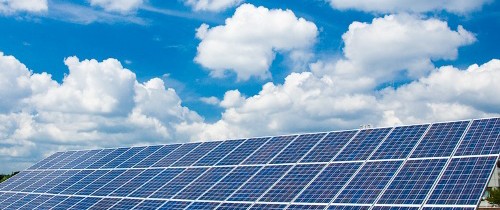EU-China solar panel anti-dumping talks face fresh flare-up
Efforts by the EU and China to settle a dispute over solar panels have hit an impasse, threatening to reheat simmering tensions between two of the world’s largest trading partners.
After weeks of intense discussions, the European Commission, the EU’s executive arm, had been hoping to close a deal this week, in which Chinese exporters agree – in lieu of paying punitive tariffs – not to sell their products in the EU below an agreed minimum price.
But commission officials were surprised by the terms of the latest Chinese offer, and told member states on Friday that it was unacceptable.
Brussels and Beijing want to put a deal in place before an August 6 deadline – after which the EU has committed to increase anti-dumping duties on imported Chinese solar products from 11 per cent to an average of 47 per cent.
Because of the associated technical and diplomatic work, EU officials had informed the Chinese that the basic details of a settlement would have to be agreed no later than June 28 – a deadline already passed.
“Time is running out,” said one EU official, who noted that the talks were now being conducted “at the highest level”.
The solar case is the EU’s largest-ever trade case, in terms of the value of the goods at stake, and has prompted Beijing to retaliate by launching its own trade investigation into European wine while threatening another against automobiles. In 2011, Chinese solar-panel exports to Europe were worth more than €20bn.
Karel De Gucht, the EU trade commissioner, has scaled back his initial demands to seek a minimum price of about 58 cents per watt, according to people familiar with the discussions, with the volume of eligible Chinese exports capped at 60 per cent of the EU market.
That price is already in line with current Chinese prices, and reflects a big concession by Brussels. It could provoke outrage from the European manufacturers, who – based on the commission’s findings – believe that a fair settlement would be above 80 cents per watt.
Beijing has moved from a previous insistence to accept no more than 50 cents per kwh, but the offer it submitted on Wednesday was still about 5 cents below the commission’s minimum. The difference sounds small, but is significant in the solar industry, where many companies are already selling at a loss.
A Chinese official declined to comment on the numbers being discussed but acknowledged “a gap between the two sides” and added: “There isn’t much room for China to manoeuvre.”
Even before the discussions began, some trade analysts expressed scepticism that a price undertaking would be successful because it would require dozens of Chinese companies to give their consent. Typically, such settlements have involved only a handful of companies.
The talks have also been complicated by the gyrations of the solar market since the commission carried out its investigation more than a year ago. Annual solar installations have fallen from 17 gigawatts to an estimated 11gw for this year.
EU solar panel prices have dropped more than 20 per cent during the same period. “The reality is, there is a significant difference between the investigative period and where the market is today,” an EU official said.
Mr De Gucht’s leverage in the talks may be limited after a majority of member states, including Germany, rebelled against the commission in May by opposing provisional duties. Their stance may have emboldened Beijing to believe that it could derail the case later this year when member states have the power to block final duties.
In addition to European solar manufacturers, Mr De Gucht is also under pressure from the many smaller businesses that install panels, which have warned of huge job losses if they are forced to pay higher prices for solar products.
Although the minimum price is the main sticking point, the talks are also facing other complications, according to officials. The EU is seeking assurances that Beijing will hold off on the wine case, according to EU officials.
Fonte: ft.com



